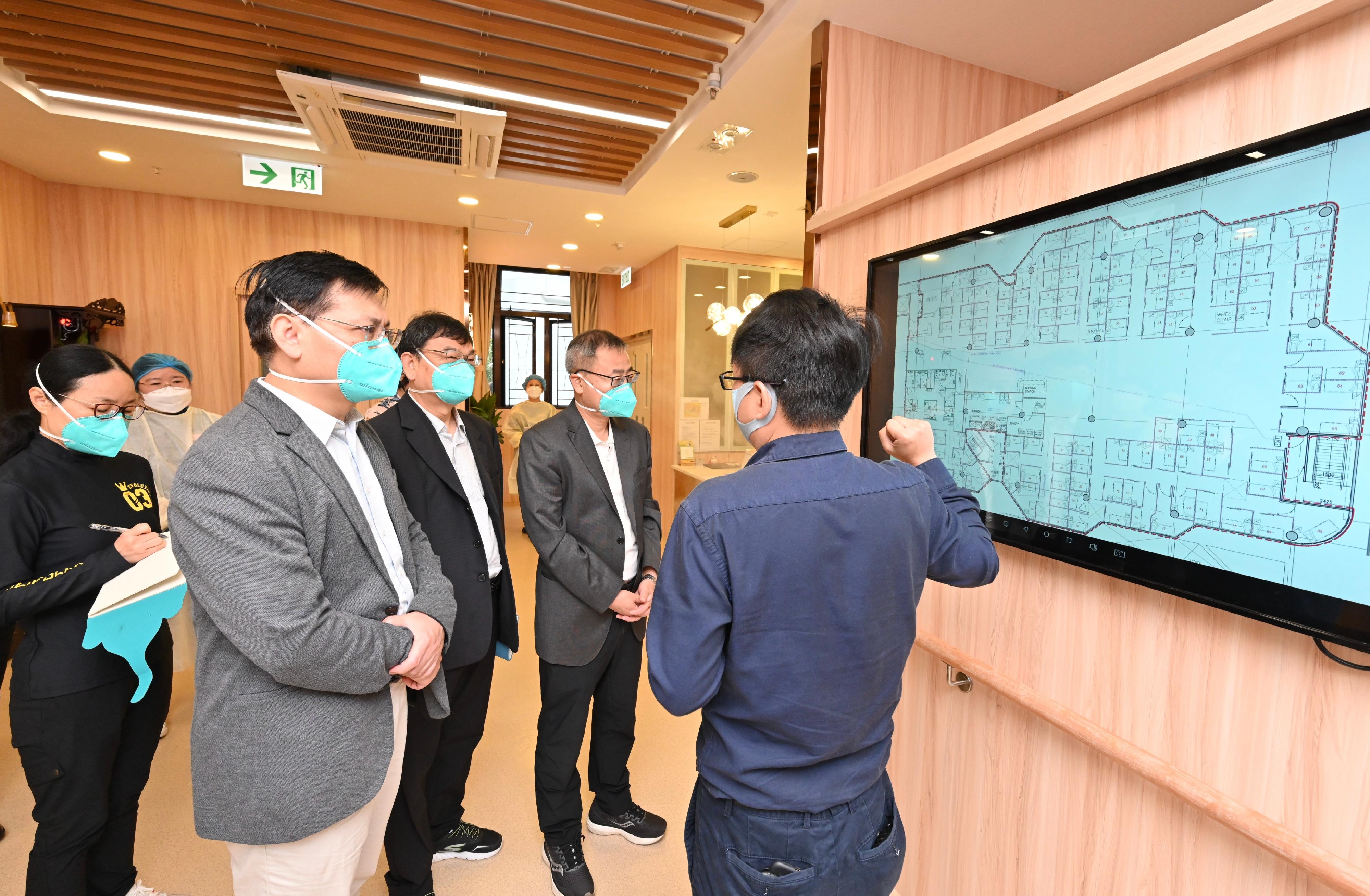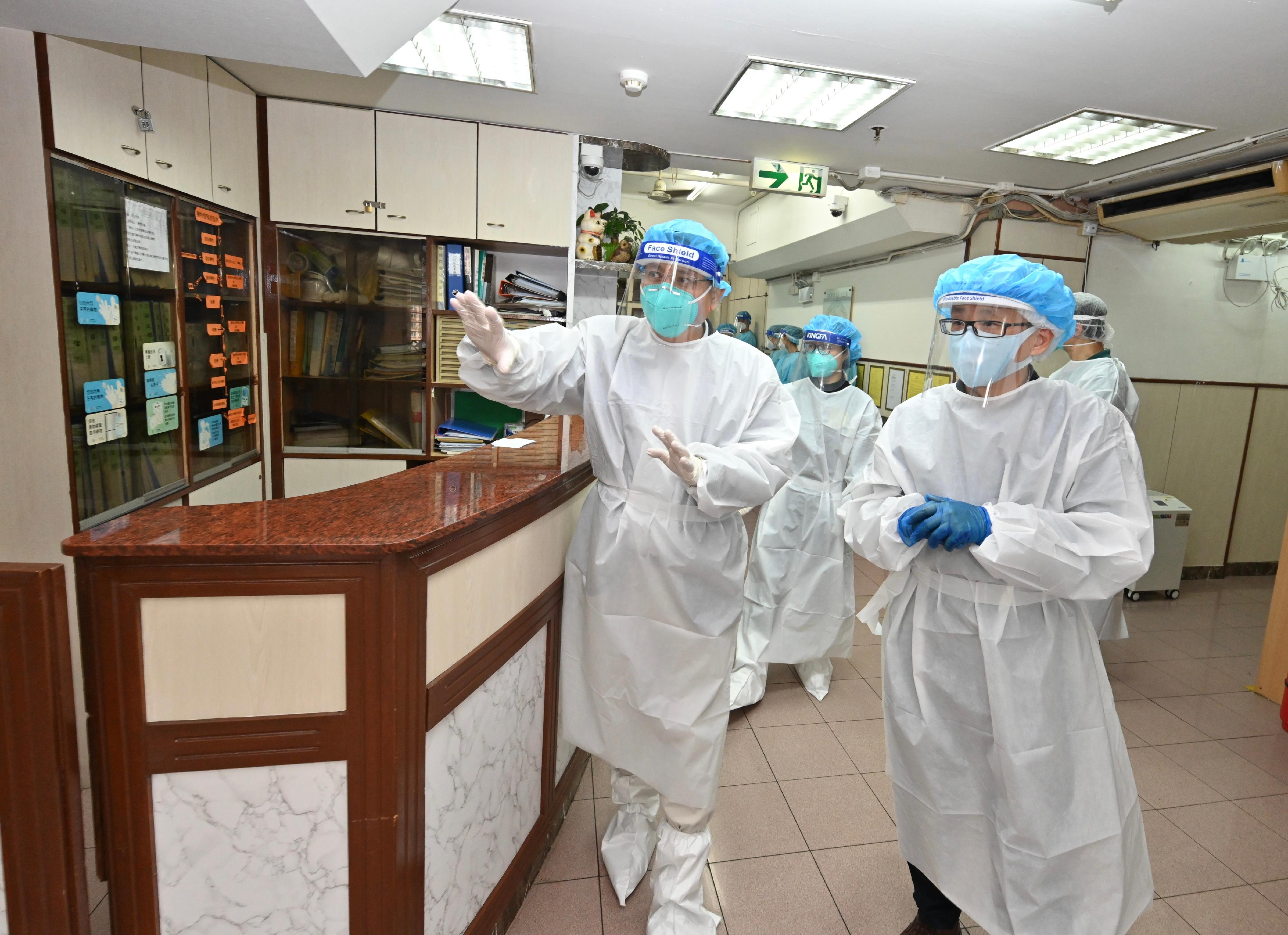Mainland epidemic prevention and control experts visit residential care homes and attend working meeting (with photos)
The Mainland epidemic prevention and control expert delegation deployed by the Central Authorities visited residential care homes for the elderly (RCHEs) and a residential care home for persons with disabilities (RCHD) today (April 13) to have a better grasp of the relevant epidemic prevention measures being adopted. They also had a working meeting with the Secretary for Food and Health, Professor Sophia Chan, and other representatives from the Food and Health Bureau (FHB), the Department of Health (DH) and the Hospital Authority (HA) to discuss the voluntary rapid antigen test (RAT) and the prevention and control strategies in RCHEs.
The expert delegation inspected two RCHEs and an RCHD in Kwai Chung in the morning to gain a deeper understanding of the residential care homes (RCHs) in Hong Kong with regard to their environment and equipment, infection control measures as well as their management and operation.
After on-site observations and briefings by the persons-in-charge of the RCHs, the expert delegation has made recommendations for improvement to the RCHs in order to reduce the infection risks of their residents. The recommendations included enhancement of the ventilation system and air purifying facilities in the RCHs, and strengthening of nucleic acid testing for residents and staff members of RCHs.
In the afternoon, the expert delegation met with Professor Sophia Chan, the Director of Health, Dr Ronald Lam, and a number of officials from the FHB, the DH and the HA to exchange views on the latest epidemic development and the anti-epidemic measures adopted by the Hong Kong Special Administrative Region (HKSAR) Government. They also discussed the effectiveness of the voluntary RAT and the prevention and control strategies in RCHEs, including ways to effectively handle the infected elderly and step up infection control measures. Furthermore, they discussed resumption of face-to-face classes in schools and how to strengthen epidemic containment for key groups of people and premises.
"Having 'reducing deaths, reducing severe cases, reducing infections' as the anti-epidemic strategies, the HKSAR Government is sparing no effort in curbing this wave of the epidemic and safeguarding citizens' lives. In addition to adopting targeted testing measures to pin down infections in the community as soon as possible, the multi-tiered triage and treatment strategy will also be strengthened to provide appropriate support for patients, especially the elderly, having regard to the severity of their medical conditions. Meanwhile, we will continue to boost the vaccination rates of the elderly and children," Professor Chan said.
Led by the Director of the National Institute for Communicable Disease Control and Prevention of the Chinese Center for Disease Control and Prevention, Mr Kan Biao, the expert delegation arrived Hong Kong on April 7 to start their work.


